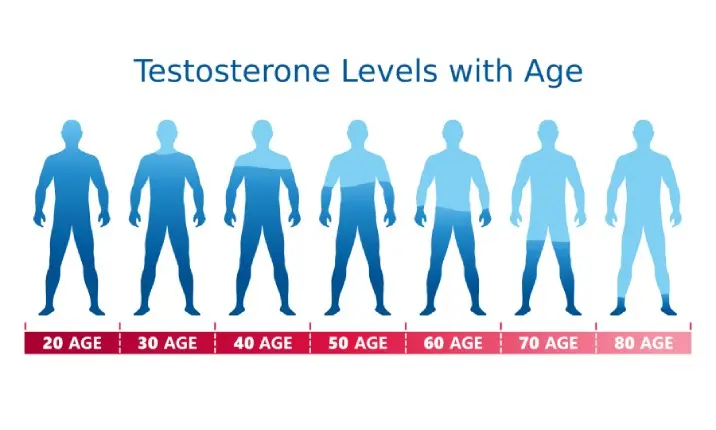Menopause is a well-known occurrence in women between the ages of 45 and 55. It involves a decrease in reproductive hormones like oestrogen and progesterone, resulting in the end of menstruation and the ability to have children. Women may experience various physical and psychological symptoms during this time, such as hot flushes, night sweats, insomnia, irritability, anxiety, depression, and forgetfulness.
But what about men? Is there a male equivalent of menopause?
What is male menopause?
As men age, their sex-related hormone testosterone declines, and their libido decreases, with some men finding it difficult to get or keep an erection during sex. Like menopausal women, ageing men also experience symptoms such as reduced muscle mass and strength, increased body fat build-up, loss of bone density, fatigue, hot flushes, night sweats, mood swings, anxiety, depression, as well as poor memory and concentration.
The term “Male menopause” is frequently used to describe the decline in testosterone levels that occurs in men as they age, and the changes that happen along with it. Other than male menopause, we have also seen terms “andropause” and “male climacteric” being used elsewhere. The concept of a male equivalent of menopause began to be talked about within the medical community from the late 1930s to the mid-1950s and later gained attention in popular media.
While it is true that testosterone levels fall with age, it is not clear whether the co-occurring physical and psychological changes are due to decreasing testosterone itself, a part of plain getting old, underlying medical conditions, or lifestyle. But academic researchers and clinicians agree on one thing: male menopause is an inappropriate term.
A male equivalent of menopause does not exist, because men simply do not undergo biological changes similar to the ones menopausal women experience.
Hormonal changes in men vs women
When we look at menopause and its potential counterpart in men, it is important that we view it from the hormonal changes that happen at midlife. The following differences reinforce the fact that male menopause does not exist.
Firstly, the decline in testosterone levels in men occurs gradually over time, in contrast to the sudden drop in oestrogen and progesterone levels experienced by menopausal women. After the age of 40, testosterone levels decrease by approximately 1% per year. It takes a considerable amount of time before these levels reach a point where symptoms may become noticeable.
Secondly, men maintain the ability to reproduce even with low testosterone levels. While women's childbearing potential declines to zero after menopause, men can still father children because testosterone is not the only hormone involved in sperm production. Furthermore, testosterone levels in the testes, where sperm are produced, remain significantly higher than in the blood.
Lastly, menopause is a universal event for all women, marking the end of their reproductive years. In contrast, only 10 – 25% of older men have testosterone levels that are considered low, while the majority have levels within the normal range. Hence, the concept of a male equivalent of menopause does not hold true because not all men will experience testosterone deficiency.
Low testosterone in ageing men
Nevertheless, it is crucial to acknowledge the matter of low testosterone in older men. Low testosterone, or hypogonadism, is a medical condition that can lead to symptoms resembling those associated with menopause. It occurs when the testes produce insufficient hormones. If lifestyle or psychological factors are not believed to be the cause, it is recommended to conduct tests for low testosterone when men exhibit signs or symptoms such as reduced sexual drive, erectile dysfunction, depression, fatigue, or difficulties with memory and concentration.
Treatment options for low testosterone may include lifestyle modifications, medications to address underlying conditions, or testosterone therapy. It is crucial for individuals to consult with their doctors to discuss their symptoms, undergo appropriate testing, and explore potential treatment options. Doctors can help patients weigh the benefits and risks of treatment, including the potential development of prostate cancer and other associated health risks.
In conclusion, while men may experience symptoms related to declining testosterone levels as they age, menopause is a distinctive biological event exclusive to women.














